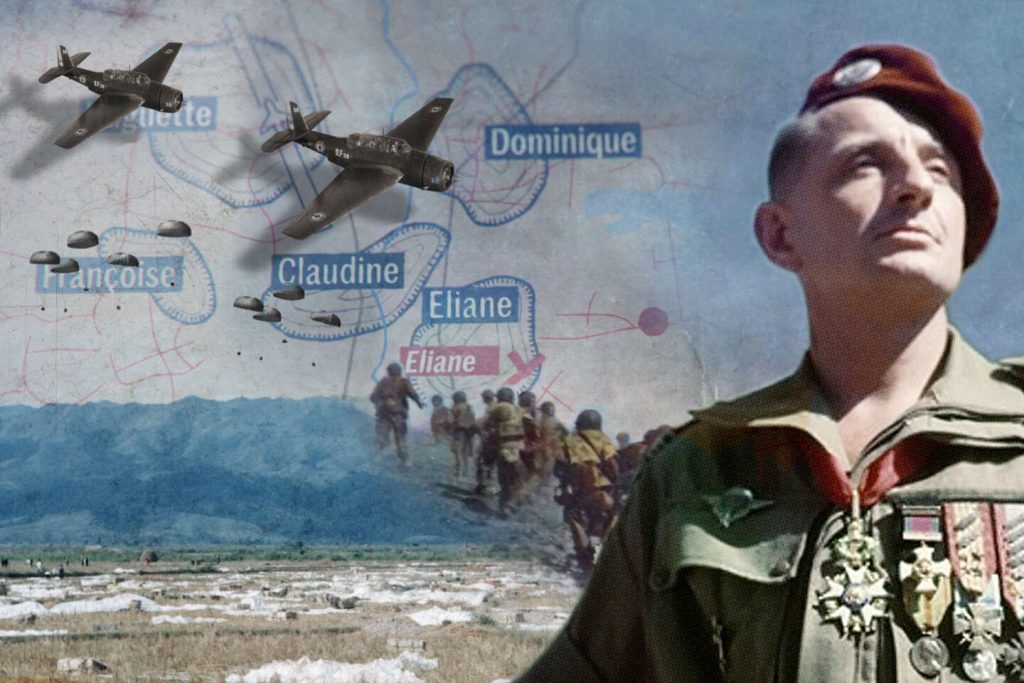On May 7, 1954, France lost the Battle of Dien Bien Phu in what is now northwestern Vietnam. The victorious Viêt Minh communists, led by Ho Chi Minh and General Giap, ended a century of French occupation of Indochina and eight years of deadly warfare that claimed the lives of approximately one million people. Dien Bien Phu represents both the end of French colonial rule and a significant military failure, as a modern army supported by the United States surrendered to insurgents without air or naval support, but with underestimated artillery provided by communist China.
The question of why and how France lost this crucial battle is explored in a new episode of a video series titled Flashback, using maps and archival material from the time. Key sources for this video include “The Battle of Dien Bien Phu, March 13 – May 7, 1954” from the ECPAD Images Défense collection, “Dien Bien Phu seen from the other side. Testimonials of bô dôi” by Nouveau Monde, and “Testimonials from Dien Bien Phu. Survivors speak” by Pierre Journoud and Hugues Tertrais from Tallandier. Also referenced is Laure Cournil’s historical thesis “Dien Bien Phu: From Trenches to Courtroom: 1953-1958” from the University of Paris I Panthéon – Sorbonne.
The Battle of Dien Bien Phu marked a significant turning point in the history of French colonialism and has been studied extensively to understand the reasons behind its outcome. The video delves into the strategic mistakes made by French forces, including the reliance on air superiority in a mountainous terrain that negated that advantage, the failure to adequately plan for the logistical challenges of supplying a remote outpost, and the underestimation of the Viêt Minh’s resolve and military capabilities.
The defeat at Dien Bien Phu was not only a military loss for France but also a symbolic blow to its colonial ambitions. The legacy of the battle continues to shape the historical narratives of both Vietnam and France, with Dien Bien Phu serving as a powerful reminder of the complexities and consequences of colonial warfare. By analyzing the events leading up to and during the battle, historians and researchers can gain valuable insights into the dynamics of imperial conflicts and the impact of decolonization movements.
The video presentation on the Battle of Dien Bien Phu sheds light on the broader historical context of the conflict and explores the personal testimonies of survivors who lived through the intense fighting. By combining archival footage, maps, and expert analysis, the episode provides a comprehensive overview of the events that led to one of the most significant battles of the Indochina War. Through a multidisciplinary approach, viewers gain a deeper understanding of the political, social, and military factors that influenced the outcome of the Battle of Dien Bien Phu and its lasting repercussions on the region.
In conclusion, the Battle of Dien Bien Phu remains a pivotal moment in the history of French colonialism and the struggle for independence in Vietnam. By examining the specific details of the battle and its broader implications, historians can better understand the complexities of imperial conflicts and the enduring legacies of colonial rule. The video series Flashback offers a unique opportunity to engage with this historical event through a multimedia presentation that combines archival research, expert analysis, and eyewitness accounts, providing a comprehensive and insightful exploration of one of the defining moments of the 20th century.


